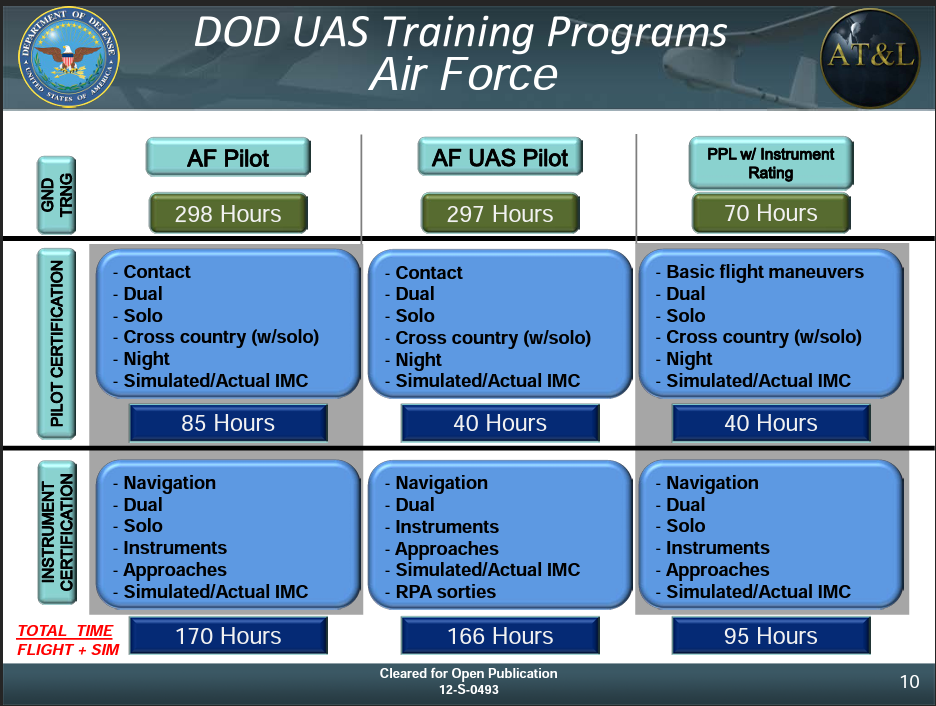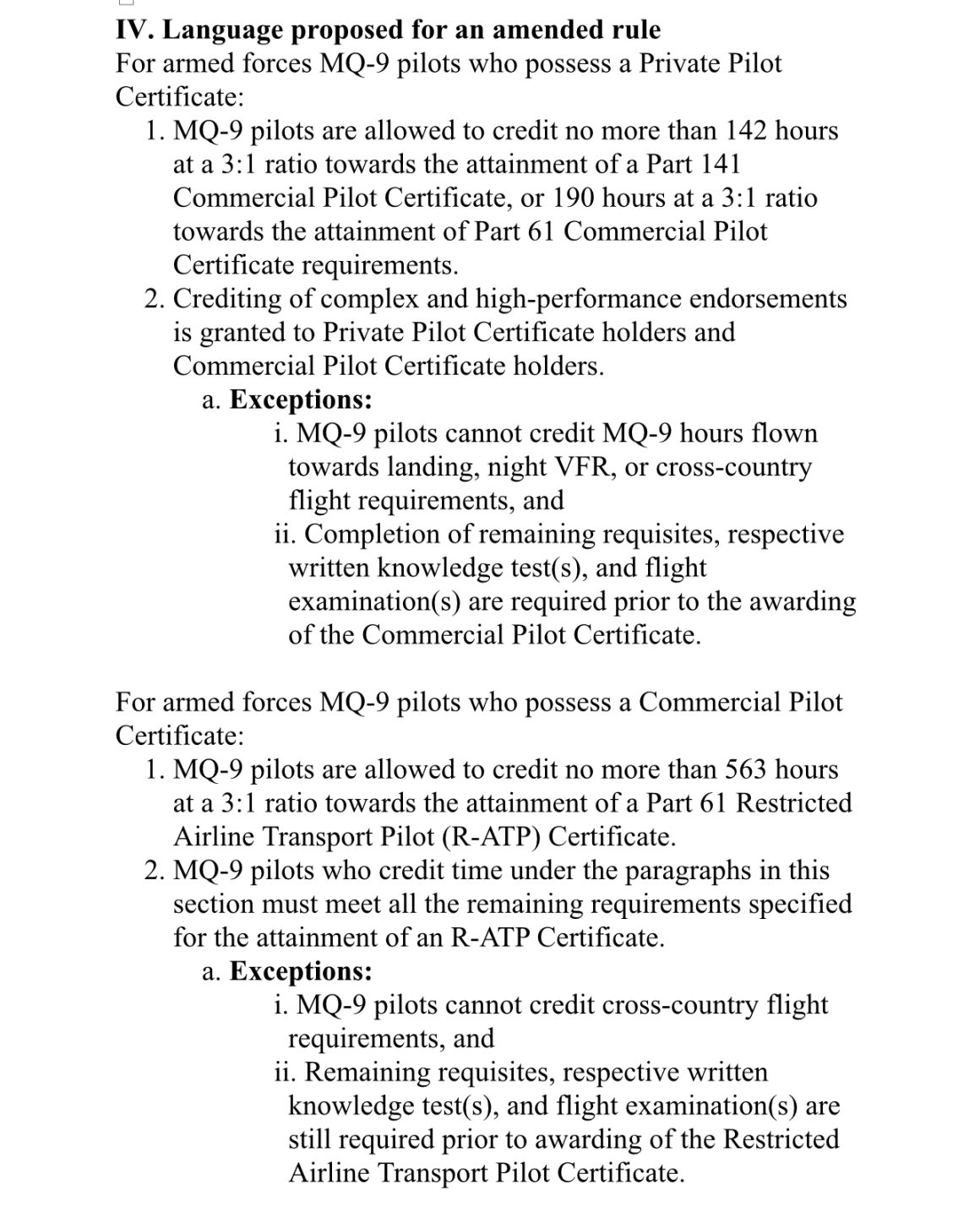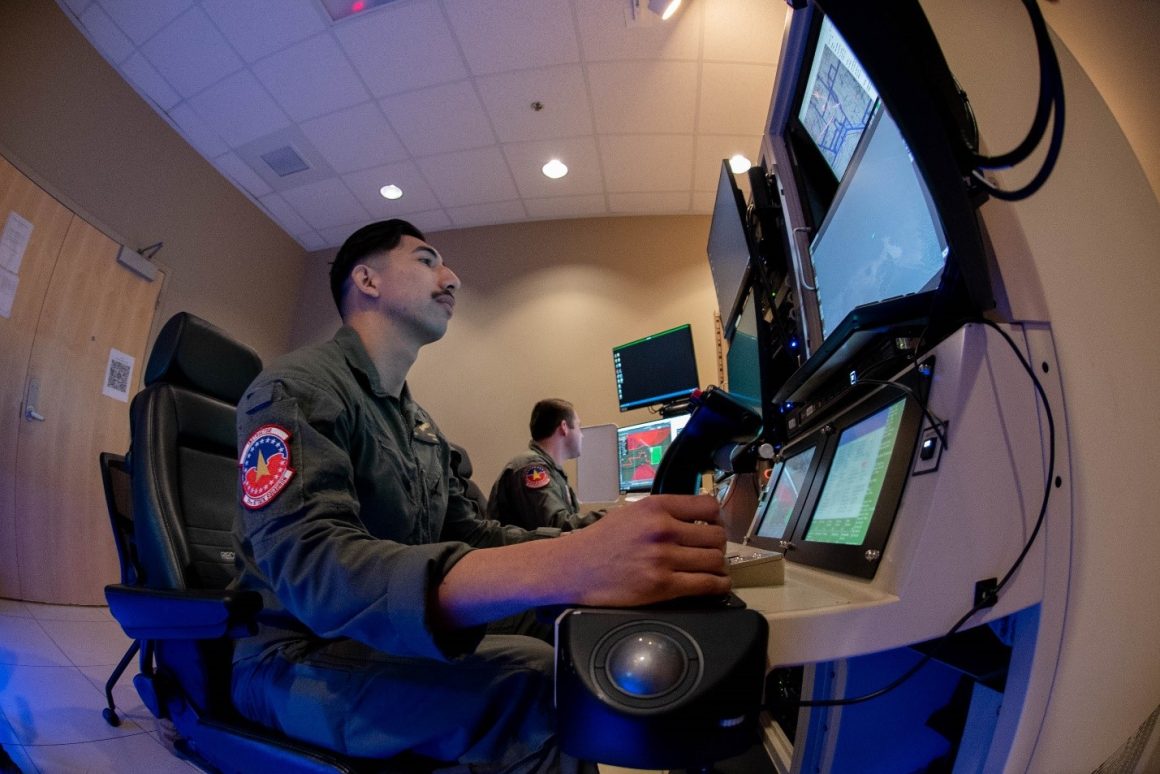A petition filed with the FAA last month is requesting an update to credit military MQ-9 Reaper pilot hours towards FAA Commercial and Restricted Airline Transport Pilot certificates. This limited change would reduce the total hours required for some military pilots to obtain a restricted or full Airline Transport Pilot (ATP) licences. Supporters also want other Group 5 UAVs (full flight controls, integrated into US and international airspace) included.
Flying a Group 5 UAV is similiar to piloting an conventional aircraft with a full set of controls, instruments, and radios. One of the only differences between a UAV and crewed aircraft is that the UAV pilot’s life is not in danger, nor are they flying people. Pilots still conduct systems checks, fuel planning, airspace planning, weather planning, communication and most other tasks typically associated with professional flight. They also fly the aircraft in a bay not unlike a simulator. They adhere to all FAA and ICAO flight rules and communicate with the appropriate ATC agencies in the airspace where they fly. The aircraft they pilot is also much more complex than a traditional drone, small UAV or even a single engine Cessna. So the question is, why is the experience considered invalid for professional licenses like an ATP?
Petition details
The petition (Docket (FAA-2023-1847) was filed by a USAF drone pilot named Tyler Jackson. And he makes some interesting observations. Some screenshots below:

Jackson notes that MQ-9 pilots execute the same duties as their crewed aircraft counterparts. They operate and control the Reaper with traditional aircraft controls, and have all the equipment available and displayed to them for day/night VFR and IFR. They perform, supervise, or direct navigation, surveillance, reconnaissance, and weapons employment operations and have mastered all aspects of advanced aviation. The USAF would not give them Reapers to fly otherwise.
He also notes that MQ-9 pilots have the same responsibilities as their crewed military counterparts. They are graded against many of the same general evaluation criteria, and undergo evaluation on an annual basis in the instrument, qualification, mission, and emergency procedure areas for their aircraft while being held to the same rigorous evaluation criteria. You can read more about that in the petition hyperlinked above.

Reaper pilots are well versed in theory of flight, air navigation, meteorology, flying directives, aircraft operating procedures, and mission tactics.
The petition also offers exceptions (see below).

MQ-9 pilots would help with the pilot shortage
“The exorbitant cost of obtaining flight certificates, whether at the Commercial or ATP levels persists, creating obstacles for potential manned pilot vacancies,” says Jackson in the petition. He adds, “Due to the unconventional nature of flying remotely piloted group 5 aircraft and heavy reliance on simulator-based training during undergraduate flight training for MQ-9 pilots, crediting MQ-9 flying hours towards FAA flight certificates may allow for greater flexibility and experimentation in the aviation industry.”
According to a 2014 Government Accountability Office report, the cost to train a crewed aircraft pilot costs over 8.5 times more than a UAV pilot. There is no lack of interest to pursue aviation careers, but the costs are the major roadblock for many who would otherwise pursue.

Jackson believes the proposed action could encourage adoption of alternative training methodologies, technologies, and approaches to civilian pilot education. Doing so could lower the costs for aspiring pilots by making training and education more affordable.
“The talent pool from the MQ-9 community is vast and could help pilots combine their full breadth of diverse experience and technologically advanced training to be great applicants for future FAA pilot shortages-especially when these applicants may only need 1/3 of their MQ-9 hours to fill the gap in hours to qualify for their restricted ATP,” says a former USAF pilot on the petition. “It has been a shame for many years to not allow these qualified candidates to have any credit for their diversity of well-rounded experience.”
